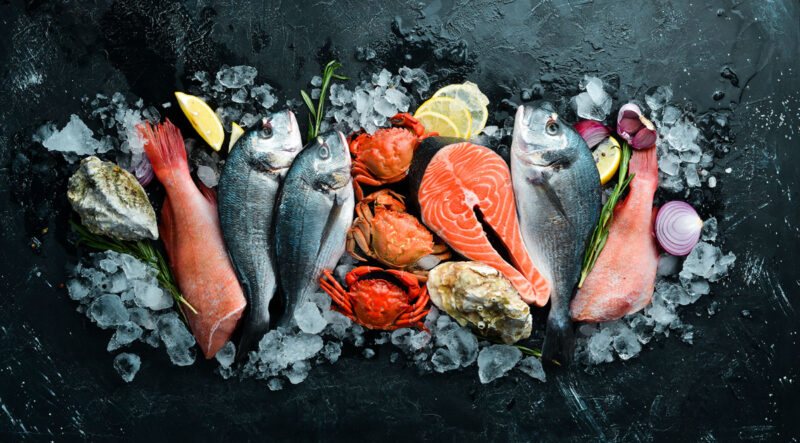Why our world needs salmon farmers
For a world struggling with food insecurity, salmon aquaculture is a beacon of hope and opportunity – a chance for us to act locally and increase food production globally.
Commentary
By Samantha McLeod
PeopleTravelFood
The war in Ukraine, the economic upheaval in Sri Lanka, droughts in Asia, famines in Africa and the malnutrition crisis in Latin America, has brought the world to the brink of a devastating global food crisis.
Add to this the consequences of climate change and the impacts of COVID-19 pandemic, the ideal of achieving a food secure planet where all people, at all times, have all the necessary means to access sufficient food is fast disappearing.
The U.N. has said countries must double the productivity and incomes of small-scale food producers by 2030 to eliminate hunger and ensure all people have access to food.
The need to act locally and think globally has never been more important when it comes to food production.
Here in Canada, we have largely been sheltered from the food crisis besieging many parts of world, primarily because we are blessed with abundant bounty from the sea and land.
But we do have our own issues.
Aging farmers, lack of truckers, congested ports, fires and floods, food producing industries like aquaculture attacked by activists, and the insanity of politicians using the unscientific vilification of food growing industries as a bargaining chip for more votes.
With improved sustainability measures and new clean technology at the forefront of food growing industries, Canada can respond to rising climate change challenges and produce food in a way that doesn’t harm the environment.
Which brings us to the hotly debated issue of salmon farming in British Columbia, an industry that provides healthy, nutritious and delicious meals to millions of people around the world.
Ocean-based salmon farms are powered largely by clean, limitless ocean currents rather than electricity and oil, which positions the industry to meet the world’s growing demand for healthy, nutrient-rich protein while reducing environmental stress to our planet.
Salmon farming in BC is one of the most sustainable industries when measured up against current requirements. B.C. salmon farmers emit only 2.2 kilograms of carbon dioxide for every kilogram of edible fish produced. That is less than half of any animal raised on land, including 5.1 kilograms of CO2 per kilogram of chicken, 6.4 kilograms for pork, and 37.2 kilograms for beef.
In addition, salmon are cold-blooded, so they convert more of the food they eat to muscle than warm-blooded animals farmed on land – only 1.1 kilograms of feed is needed to increase a farmed salmon’s weight by one kilogram, while it takes 1.9 kilograms of feed for chicken, 3.8 kilograms for pork and 8.0 kilograms for beef.
Since its inception in the late 1960s, BC’s salmon farming industry has responded to constructive criticism and has used that to constantly move toward greater environmental stewardship by implementing cutting-edge technologies and innovations. It now leads the world in this regard.
International peer reviewed scientific studies and the courts have all said that ocean-based salmon farming, when done properly, as is being conducted in Canada, poses no more than a minimal risk to wild salmon.
But the activists, especially on Canada’s west coast, aided by their funders who see a chance to make money on the stock markets with unproven and environmentally dangerous land-based operations, want to oust salmon farmers from the sea.
Over the years, they have propagated falsehoods and myths with junk science to demonise one of the most sustainable protein production industries in the world. Attacking food growing industries is the most powerful weapon of mass destruction, which begs the question of who is the mastermind of this questionable ‘movement’?
They have threatened politicians with votes amassed from an urban following – far removed from the working classes of the coastal communities where aquaculture thrives – to kill thousands of jobs with a false hope that removing salmon farms will bring back wild stocks. Which it will not because most of what is left is being drag-netted, frozen right at sea, and flown off to far off places, where salmon can be bought dirt cheap at wet markets.
Falsehood is part and parcel of today’s cancel culture and when the ‘movement’s’ questionable science is not endorsed and officially released, they claim it’s a cover up by the Department of Fisheries and Oceans (DFO). There was a time when we rolled our eyes at conspiracy theorists’ but today they are armed with lies and extremely dangerous.
They promote institutional distrust with their activist scientists claiming all manner of conspiracy theories, without a shred of evidence. And the severely short-staffed, unmotivated and/or lazy media regurgitates it and spits it back onto page after page, newspaper after newspaper – which by the way is mostly owned by one corporation – without one “journalist” leaving the comforts of their couch and/or the scrolling of their cellphone.
BC’s salmon farmers were the first out of the natural resources industry gate with a comprehensive post-Covid 19 economic recovery plan that outlined investments worth $1.4 billion in innovation, new technology and infrastructure.
The investments through 2050 would create almost 10,000 new jobs and add a cumulative $44 billion in new economic activity to propel Canada’s Blue Economy and help feed a hungry world.
Instead of working in partnership to realise this, the activists and their followers, want to kill a key element that will help provide increased food security, not only for Canada but the world.
Marine aquaculture can help the world diversify its stressed food systems.
It has multiple climate benefits, from carbon sequestering to contributing to eco-friendly products.
For a world struggling with food insecurity, aquaculture is a beacon of hope and opportunity – a chance for us to act locally and increase food production globally.
Image credit: Adobe Stock showing the bounty of the sea

